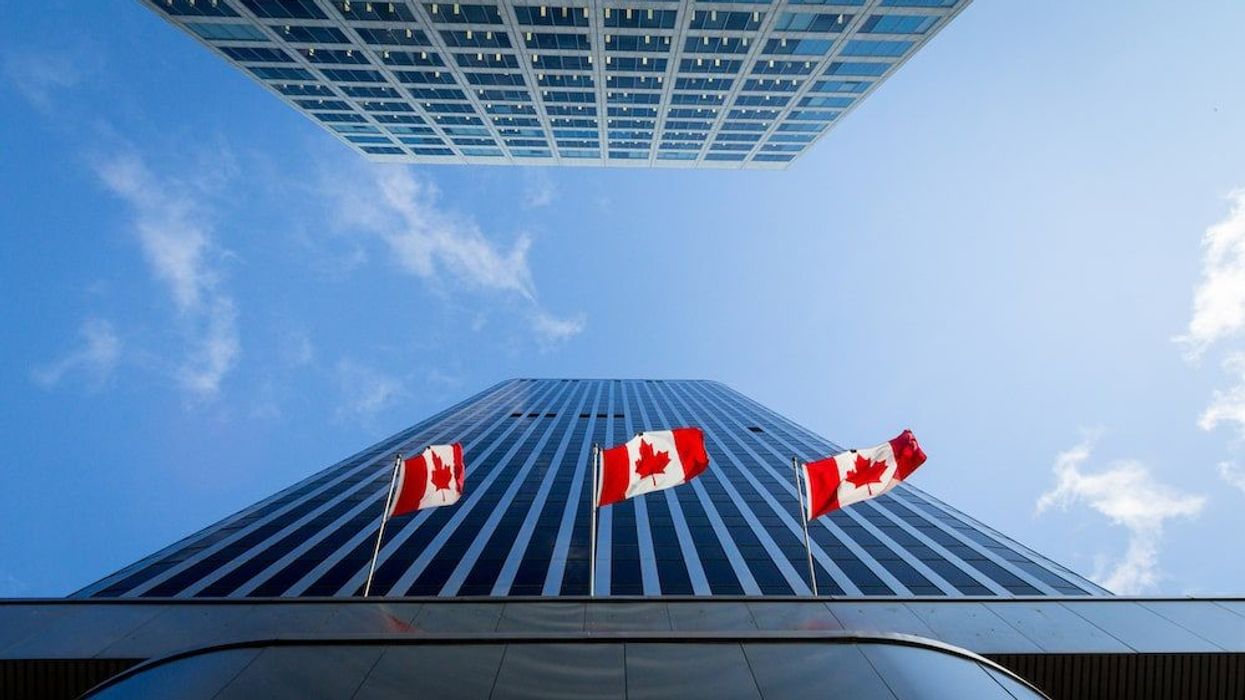Canadian inflation continued to edge down in March according to new data from Statistics Canada. At 4.3%, the annual Consumer Price Index -- the most common indicator of inflation -- has fallen to its lowest level since August 2021.
StatCan’s latest reading shows that, excluding food and energy, prices were up 4.5% in March, slowing from a 4.8% gain in February. Excluding mortgage interest cost, the all-items CPI rose 3.6%, after increasing 4.7% in February. Despite an unmistakable slowdown almost across the board, mortgage costs remained dramatically elevated, up 26.4%.
Still, "all roads do indeed point to 3% inflation in the months ahead," writes Doug Porter, Chief Economist at BMO Capital Markets, in a report published today. But make no mistake, 4.3% is still a lofty measure, and Porter questions whether a 4.5% policy rate is "acceptably restrictive."
Porter is in good company. While industry experts agree that March’s inflation reading is encouraging news, they also caution that, when it comes to rate pain and otherwise, we’re not out of the woods just yet.
“The fight against inflation is not over”
Marc Desormeaux, Principal Economist at Desjardins says that March’s reading is “right in line” with Desjardins’ projections.
“We had 4.4% year over year, and it was 4.3%. We had core inflation at 4.4%, and it was at 4.5%,” he says. “I would say that the results are probably pretty encouraging for the Bank of Canada because they demonstrate that inflation is slowing across a number of indicators.”
Still, Desormeaux cautions that “the fight against inflation is not over yet,” adding that the BoC will most likely keep its benchmark interest rate on hold until the end of the year, after which, Desjardins cautiously anticipates a rate cut.
“We still haven't seen the full effects of rising interest rates in the Canadian economy. We typically talk about a peak impact of six to eight quarters after an initial interest rate change, so right now, we would be about four quarters away from the effects of that initial increase in March 2022,” he says. “As some of these effects start to weigh on the Canadian economy, we think that's going to result in slower economic growth, which will contribute to lower inflation as the year progresses. Once those effects become clear, the Bank of Canada will judge it necessary to adopt a monetary policy that's less restrictive than it is at the moment.”
More rate hikes not out of the question
Nikola Gradojevic, Professor of Finance at the University of Guelph, calls March’s reading “a pleasant surprise.” But in similar fashion to Desormeaux, he urges Canadians to manage their expectations.
“The situation is more complex than a simple adjustment of interest rates and involves forces such as carbon taxes, consumer confidence, weakening purchasing power of Canadians, supply chain problems, OPEC oil production cuts, banking crisis, and geopolitical and pandemic uncertainties.”
As such, Gradojevic is not discounting another rate hike down the line.
“The BoC will likely hold the policy rate in June, but there may be another increase coming this year,” he says, predicting a hike of 25 basis points. “It will not be an easy job for the BoC to tame inflation and avoid a recession. Higher interest rates will cause credit tightening, more banking losses, and increased consumer insolvencies, which were up 24.2% in February 2023, relative to February 2022.”
With inflation hinging on so many unknowns, Gradojevic says it’s “difficult to predict” when it will come down to a healthy level.
“I tend to be optimistic, but I think it will take longer than usual to balance the economy and reduce inflation to within its 1% to 3% target, possibly well into 2024,” he says. “It will take a lot of craft on the BoC's part to achieve economic stability and not conflict with some of the political objectives in the fields such as immigration and carbon policies.”
“I wouldn’t bank on an interest rate cut just yet”
Gabriel Giguère, Policy Analyst at the Montreal Economic Institute, says that March’s dip in CPI was “sharper” than expected and “a step in the right direction.”
“Let’s be clear though, our central bank has been very clear about the fact it wants to get inflation back down to 2%. There's still a long way to go,” he says. “I wouldn’t bank on an interest rate cut just yet, as some major components such as food remain quite high.”
He adds that slowing inflation may not be the salvation that Canadians are hoping for.
“Inflation slowing down doesn’t mean prices will go back down to their previous levels, it means they won’t increase as fast. This inflationary period will keep costing Canadians a lot of money for the foreseeable future. It should serve as a cautionary tale to government overspending and its effects on all of us.”
The bank is playing the long game
Jerome Trail, Mortgage Broker at The Mortgage Trail, agrees with Desormeaux that the BoC is likely to hold off on rate hikes for the remainder of the year. But like Giguère, Trail doesn't anticipate a rate cut any time soon. The bank's messaging is clear: they're playing the long game.
“The Bank of Canada has told us they want to bring core inflation back to the 3% range, so we still have a long way to go,” he says. “This is a gradual process. We have momentum and we’re going in the right direction, but there are going to be some bumps along the way. So curb your expectations.”
Still, Trail believes March’s inflation reading will help to restore consumer confidence.
“This will have more of a psychological impact on homebuyers in that the Bank of Canada and external measures are helping to bring inflation down, which will, at some point, allow the bank to ease their quantitative efforts,” he says. “And at the same time, it's not going to make much of an impact in the short-term on interest rates. The Bank of Canada has declared they're probably not going to be doing anything until the latter part of 2024. So we still have a long way to go, but this is a fantastic first step.”





















